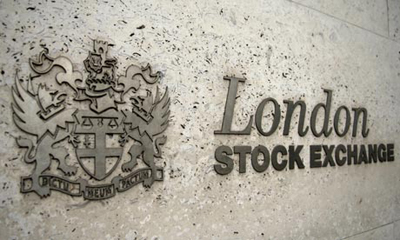Tuesday, 07 July 2015 17:31
 LONDON: Emerging market stocks fell for a fifth straight day on Tuesday, reaching a six-month low, as China’s troubled bourses continued to slide.
LONDON: Emerging market stocks fell for a fifth straight day on Tuesday, reaching a six-month low, as China’s troubled bourses continued to slide.
The latest drop for MSCI’s EM share index followed its biggest fall in two years on Monday. The slump has wiped more than 12 percent off its value since April.
An expected rise in US interest rates and Europe’s worries about Greece helped cause the selloff.
But a 30 percent plunge by Chinese stocks over the last month has been the main driver.
The CSI300 index of the largest listed companies in Shanghai and Shenzhen ended down 1.8 percent and the Shanghai Composite Index lost 1.3 percent.
Both were unnerved by Chinese Premier Li Keqiang’s failure to mention the market chaos in a statement on the economy before markets opened.
“You just have to be active in these things,” said Jan Dehn at fund manager Ashmore in London.
“We don’t have any exposure in the A-share market now because it’s down 30 percent. Maybe when it’s down 40 percent, we will buy some.” The unease around China came despite support measures from Beijing in recent weeks.
It continued to weigh on other Asian markets, including Hong Kong, Korea, Malaysia and Indonesia.
In the currency markets, the jitters saw South Korea’s won near a four-month low. The Malaysian ringgit hovered at 16-year low amid a corruption scandal now linked to the country’s prime minister. Greece’s troubles also weighed on global risk markets.
Before a euro zone summit later in the day, France and Germany told Athens to come up with serious proposals to restart aid talks. And on Monday the European Central Bank increased the amount of collateral they must provide to get emergency funding.
Central and eastern European stocks fell 0.8 percent in morning trading as the potential fallout of a Greek exit from the euro zone on their largest export market — the euro zone — took their losses since mid-May to over 16 percent. A new report from Austria’s Erste bank calculated Greek banks hold about 28 percent of all Bulgarian banking assets.
The Serbian central bank says local exposure is about 14 percent.
In Romania it adds up to around 3 billion euros, or 12 percent.
Poland’s zloty and Hungary’s forint were both testing their March lows against the dollar, although they moved less against the weakened euro.
“The market is trying to gauge how risky or how probable a Grexit is. This is creating a mini risk selloff which is impacting currencies,” Christian Maggio, strategist, TD Securities.-Reuters




























